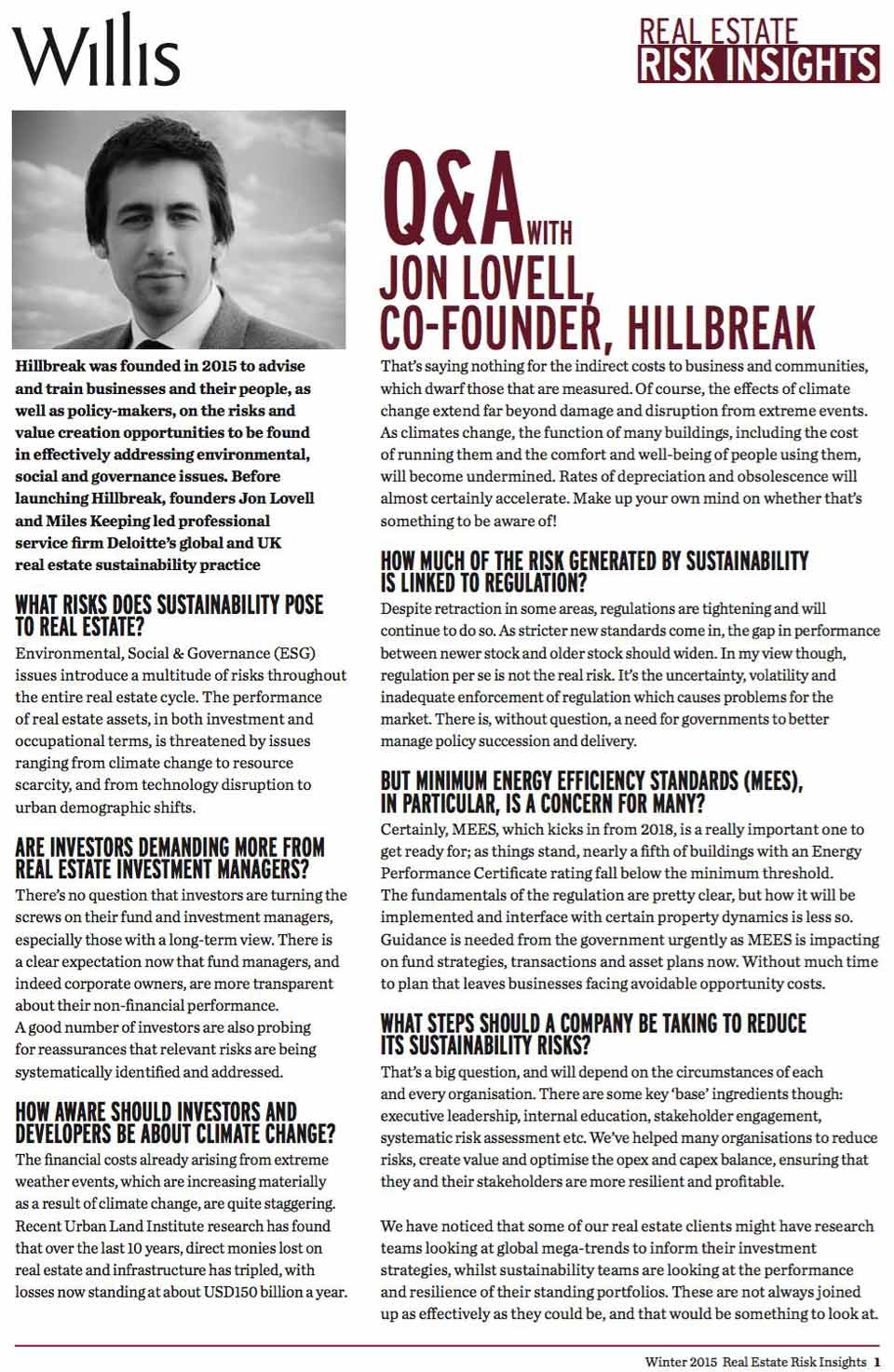Strategic Foresight: Stage 1 – Framing the Strategic Question
Framing the Strategic Question
It might seem an overused assertion, but leadership in the corporate realm faces new uncertainties greater than at any time before. The global pace of change, and the ramifications of it, seriously tests the capacities of businesses, of all scales and sectors, to formulate and implement resilient plans and adaptive strategies.
It is why, at Hillbreak, we advocate frequently the adoption of ‘Strategic Foresight’ by our clients, whether as a feature of developing or refreshing Responsible Investment strategies, or as part of business planning processes more broadly. The concept, and the six-stage approach that we adopt, is one that we have summarised in a previous introductory article.
This post, the beginning of a new, monthly series that will provide greater depth on the six stages in the Strategic Foresight process, focuses on the first: Framing the Strategic Question.
Purpose
All too often insufficient time and thought is given at the outset of a project to defining the scope and focus of the issues facing an organisation. Not infrequently, studies end-up addressing the wrong problem or discovering the real issue halfway through having generated considerable confusion along the way. It is therefore not simply a matter of asking the right question, but of framing it within the context and purpose of the organisation. To achieve this, we have a few key guidelines, as follows:
1. Understanding the organisation
No two organisations are alike; what works well with one might easily backfire with another. Central to our process is an opening series of tailored ‘strategic conversations’ with selected players from within and, where appropriate, outside the organisation.
We also favour the familiar, yet forever fruitful, Strengths-Weaknesses-Opportunities-Threats (SWOT) analysis. But it is important not to over-sophisticate the process; large measures of common sense are critical.
2. Aligning attitudes and expectations
Getting all client stakeholders to buy-in to the strategic foresight process is not always easy. Internal participants can be sceptical and may perceive that the foresight consultant is not paying sufficient attention to the immediate concerns of the financial bottom-line. Time spent explaining the rationale and the method is, therefore, never wasted.
Neither is crafting a positive depiction of the future and exploring the biases of both the participating client groups and the facilitator. Too many foresight exercises concentrate narrowly on highlighting hazards and negative impacts. Of course, researching and evaluating risks is crucial, but it is only one side of the futures coin.
Primarily, foresight requires the ability to recognise patterns involving relationships and systems that are complex and non-linear. This often entails a significant realignment of mind-sets among participants.
3. Clarifying the rationale
The essential purpose of employing futures-thinking and foresight methodology is to gain a better understanding of the opportunities and challenges that lie ahead, so that superior decisions can be taken today. Fundamentally, therefore, the client organisation must resolve what it wants to achieve. This is not as simple as it sounds. Aspirations and perceptions vary considerably over corporate time-horizons and across business imperatives.
Firms can be quite unclear as to what decisions they need to make to secure their future. Investing time and effort up-front clarifying the focal objectives, motivations and reasoning pays enormous dividends. In our experience, a prime outcome of foresighting is getting client companies to balance successfully the exploitation of the near-term (day-to-day operational management) with an exploration of the longer-term (blue-sky strategizing). The two, ideally, should feed off each other.
4. Establishing clear objectives
Defining the purpose of the strategic foresight project and the related objectives of the organisation is imperative. Some of these might be quite specific, addressing a known issue (e.g. merger, relocation, new product development, re-organisation etc.); others more ethereal (e.g. creativity, innovation, corporate citizenship, responsible investment, well-being or enlightened leadership etc.).
Generally, the overriding objective is to bring fresh thinking, new ideas and a change of mind-set into organisations all too often stuck in self-constructed ‘silos’ of planning and operation. An effective foresight project should help a client focus on ‘outcomes’ not ‘outputs’ and work across multiple time-horizons.
5. Choosing the right participants
It is essential that the support of the Executive is in place. That said, strategic foresight is a ‘team sport’. From experience, the core group driving the project should be no greater in number than five or six, whilst strategic conversations should be conducted with around a dozen or so carefully chosen ‘players’. It is often preferable for this to include a few well-informed, external stakeholders.
Strategic foresight workshops should comprise anything from 12 to 30 participants who are truly representative of the organisation. They should ideally be complemented by some provocateurs who can offer differing views of the organisation and the world at large.
It is important to recognise throughout that strategic foresight requires creative, collaborative and challenging thinking. The ultimate message might best be formed in a favourable light so that recommendations are evaluated positively, but we do not exist to tell organisations what they want to hear. In our experience, clients today place far more value on candour and integrity.







